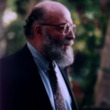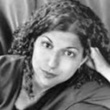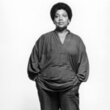1185 Park Avenue : a memoir
(Book)
B ROIPHE A
1 available
Copies
| Location | Call Number | Status |
|---|---|---|
| Central - Adult Biography | B ROIPHE A | Available |
Description
More Details
Notes
Subjects
Jews -- New York (State) -- New York -- Biography.
New York (N.Y.) -- Social life and customs.
Novelists, American -- 20th century -- Biography.
Novelists, American -- 20th century -- Family relationships.
Park Avenue (New York, N.Y.) -- Biography.
Roiphe, Anne Richardson, -- 1935- -- Childhood and youth.
Roiphe, Anne Richardson, -- 1935- -- Family.
Excerpt
Similar Titles From NoveList
Similar Authors From NoveList
Published Reviews
Booklist Review
Roiphe has always drawn on her family history in her novels and in her nonfiction, such as Fruitful (1996), but this memoir tells all, revealing the harsh intimate secrets of her father, mother, brother, and of Roiphe herself. Most compelling is the insider's view of what it was like to grow up in a rich Jewish immigrant family in the 1940s and 1950s, despising the newly rich with their gilt and lamentation, their "abhorrent vulnerability," longing to assimilate, to be one of the stiff-upper-lip real Americans, even if she could not join their clubs, which were not open to Jewish girls. There is sometimes too much obsessive detail, but Roiphe's acerbic, passionate sentences twist and turn and stop you short with their wit and painful insight. In simple words, she hears her brother's reason for having only one child: "He told me he would never do to his son what had been done to him, that is me, that is, a sibling." --Hazel Rochman
Publisher's Weekly Review
A noted author of fiction (her 1970 Up the Sandbox was a landmark portrayal of women's motherhood and career conflicts) as well as nonfiction (Fruitful was a 1996 National Book Award finalist), Roiphe recalls growing up in a loveless household marked by petty bitterness and fueled by murderous rage. Outwardly, it was a world of privilege, endowed by the fortune of Israel Phillips, her maternal grandfather, the founder of the Phillips Van Heusen shirt company. The family's wealth attracted a tall, handsome husband for Israel's daughter Blanche, but the union was miserable. Anne's mother was prey to neurotic insecurities that were resistant to lifelong psychiatric counseling, and she became a chain-smoking semi-invalid. Like her philandering husband, Blanche displayed little interest in the children, who were consigned to the care of a stern German governess. In this surprising and gripping memoir, Roiphe unflinchingly describes her savage jealousy at the birth of her brother and the anger that always underlay their relationship. Her extended family circle included Roy Cohn, whose attempt to fix Anne up for a blind date with his colleague David Schine's younger brother provides one of the book's lighter moments. She describes with telling detail her passage to adulthood, but the story of her inner journeyÄhow she managed to escape the destructive atmosphere of her home and become a celebrated novelist and criticÄ remains a puzzle. Nevertheless Roiphe's devastating memoir fully engages the reader in her painful story of hatred and betrayal. (June) (c) Copyright PWxyz, LLC. All rights reserved
Library Journal Review
With a rush of words, layer upon layer, acclaimed author Roiphe (Fruitful, LJ 8/1/96; Up the Sandbox, 1970) dissects her childhood family, depicting as well a grim view of growing up rich and Jewish on Upper Park Avenue in the 1940s and 1950s. The daughter of a wealthy, frightened, chainsmoking mother and a handsome, philandering, cold, immigrant father who rejected his past, Roiphe watched her parents savage each other daily. Unable to connect with her asthmatic, hated, hateful younger brother (though later there is some reconciliation), Roiphe forged a relationship with her mother by becoming her confidante while still craving her father's love. The tragedy of her parents' disastrous marriage repeats itself in Roiphe's own life, when she marries a man like her father, who wants her money but not her. This is not pleasurable reading: the subject matter is deceptively brutal, and the writing is marred by too much detail and repetition. Nonetheless, it is hard to put down this mesmerizing memoir. Buy where Roiphe and memoir are popular.ÄFrancine Fialkoff, "Library Journal" (c) Copyright 2010. Library Journals LLC, a wholly owned subsidiary of Media Source, Inc. No redistribution permitted.
Booklist Reviews
Roiphe has always drawn on her family history in her novels and in her nonfiction, such as Fruitful (1996), but this memoir tells all, revealing the harsh intimate secrets of her father, mother, brother, and of Roiphe herself. Most compelling is the insider's view of what it was like to grow up in a rich Jewish immigrant family in the 1940s and 1950s, despising the newly rich with their gilt and lamentation, their "abhorrent vulnerability," longing to assimilate, to be one of the stiff-upper-lip real Americans, even if she could not join their clubs, which were not open to Jewish girls. There is sometimes too much obsessive detail, but Roiphe's acerbic, passionate sentences twist and turn and stop you short with their wit and painful insight. In simple words, she hears her brother's reason for having only one child: "He told me he would never do to his son what had been done to him, that is me, that is, a sibling." ((Reviewed June 1 & 15, 1999)) Copyright 2000 Booklist Reviews
Library Journal Reviews
With a rush of words, layer upon layer, acclaimed author Roiphe (Fruitful, LJ 8/1/96; Up the Sandbox, 1970) dissects her childhood family, depicting as well a grim view of growing up rich and Jewish on Upper Park Avenue in the 1940s and 1950s. The daughter of a wealthy, frightened, chainsmoking mother and a handsome, philandering, cold, immigrant father who rejected his past, Roiphe watched her parents savage each other daily. Unable to connect with her asthmatic, hated, hateful younger brother (though later there is some reconciliation), Roiphe forged a relationship with her mother by becoming her confidante while still craving her father's love. The tragedy of her parents' disastrous marriage repeats itself in Roiphe's own life, when she marries a man like her father, who wants her money but not her. This is not pleasurable reading: the subject matter is deceptively brutal, and the writing is marred by too much detail and repetition. Nonetheless, it is hard to put down this mesmerizing memoir. Buy where Roiphe and memoir are popular.AFrancine Fialkoff, "Library Journal" Copyright 1999 Cahners Business Information.
Publishers Weekly Reviews
A noted author of fiction (her 1970 Up the Sandbox was a landmark portrayal of women's motherhood and career conflicts) as well as nonfiction (Fruitful was a 1996 National Book Award finalist), Roiphe recalls growing up in a loveless household marked by petty bitterness and fueled by murderous rage. Outwardly, it was a world of privilege, endowed by the fortune of Israel Phillips, her maternal grandfather, the founder of the Phillips Van Heusen shirt company. The family's wealth attracted a tall, handsome husband for Israel's daughter Blanche, but the union was miserable. Anne's mother was prey to neurotic insecurities that were resistant to lifelong psychiatric counseling, and she became a chain-smoking semi-invalid. Like her philandering husband, Blanche displayed little interest in the children, who were consigned to the care of a stern German governess. In this surprising and gripping memoir, Roiphe unflinchingly describes her savage jealousy at the birth of her brother and the anger that always underlay their relationship. Her extended family circle included Roy Cohn, whose attempt to fix Anne up for a blind date with his colleague David Schine's younger brother provides one of the book's lighter moments. She describes with telling detail her passage to adulthood, but the story of her inner journey how she managed to escape the destructive atmosphere of her home and become a celebrated novelist and critic remains a puzzle. Nevertheless Roiphe's devastating memoir fully engages the reader in her painful story of hatred and betrayal. (June) Copyright 1999 Publishers Weekly Reviews
Reviews from GoodReads
Citations
Roiphe, A. R. (2000). 1185 Park Avenue: a memoir (First Touchstone edition.). Simon & Schuster.
Chicago / Turabian - Author Date Citation, 17th Edition (style guide)Roiphe, Anne Richardson, 1935-. 2000. 1185 Park Avenue: A Memoir. New York: Simon & Schuster.
Chicago / Turabian - Humanities (Notes and Bibliography) Citation, 17th Edition (style guide)Roiphe, Anne Richardson, 1935-. 1185 Park Avenue: A Memoir New York: Simon & Schuster, 2000.
Harvard Citation (style guide)Roiphe, A. R. (2000). 1185 park avenue: a memoir. First Touchstone edn. New York: Simon & Schuster.
MLA Citation, 9th Edition (style guide)Roiphe, Anne Richardson. 1185 Park Avenue: A Memoir First Touchstone edition., Simon & Schuster, 2000.






























